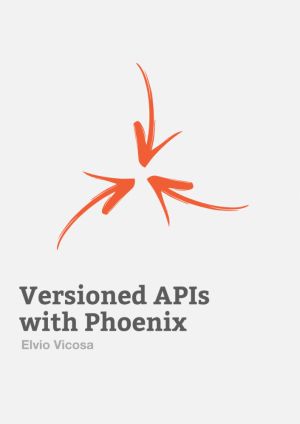Versioned APIs with Phoenix
by Elvio Vicosa
DescriptionTable of ContentsDetailsHashtagsReport an issue
After the drawings are finished, the construction materials need to be chosen and things like the brick type, the insulation layer, the heating and plumbing systems affect how the house is going to be built.
The construction phase starts when the architect gathered all the information and after some time the house is (hopefully) finished.
What would happen, if after the house is finished, the family that owns the house asks the architect to change the brick type? What would happen if the family realises that they want an extra floor? On the traditional manufacturing and construction industries, changes like these are not common, because they have prohibitive costs, and usually they are impossible.
Software development is often compared with the construction of a house, where a development team would be able to forecast and plan all the details involving a project, but it couldn't be more different. Differently from building a house, software evolves.
Doesn't matter the industry you are in or the programming language you use. If you are developing software, one thing is guaranteed: it will change. 





Book Description
To build a house, it's necessary to go through different phases before stacking the first brick. The architect needs to pay attention to everything, drawing all the technical details and documenting the architecture design.After the drawings are finished, the construction materials need to be chosen and things like the brick type, the insulation layer, the heating and plumbing systems affect how the house is going to be built.
The construction phase starts when the architect gathered all the information and after some time the house is (hopefully) finished.
What would happen, if after the house is finished, the family that owns the house asks the architect to change the brick type? What would happen if the family realises that they want an extra floor? On the traditional manufacturing and construction industries, changes like these are not common, because they have prohibitive costs, and usually they are impossible.
Software development is often compared with the construction of a house, where a development team would be able to forecast and plan all the details involving a project, but it couldn't be more different. Differently from building a house, software evolves.
Doesn't matter the industry you are in or the programming language you use. If you are developing software, one thing is guaranteed: it will change.
This open book is licensed under a Open Publication License (OPL). You can download Versioned APIs with Phoenix ebook for free in PDF format (0.4 MB).
Table of Contents
Chapter 1
Product Evolution
Chapter 2
API versioning
Chapter 3
A Phoenix request
Chapter 4
Common code
Chapter 5
Versioning with request parameter
Chapter 6
Versioning with URL
Chapter 7
Versioning with Accept header
Book Details
Title
Versioned APIs with Phoenix
Subject
Computer Science
Publisher
Self-publishing
Published
2016
Pages
21
Edition
1
Language
English
PDF Size
0.4 MB
License
Open Publication License
Related Books
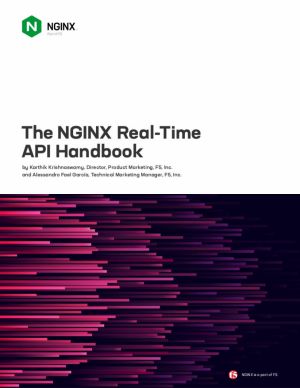
Discover how to deliver reliable, high-performance APIs with our NGINX Real-Time API Handbook. Compiled by leading experts on real-time API management, this handbook is a comprehensive guide to reducing latency in your applications and APIs without making any compromises. Learn why now, more than ever, your APIs need to perform in real time to meet...
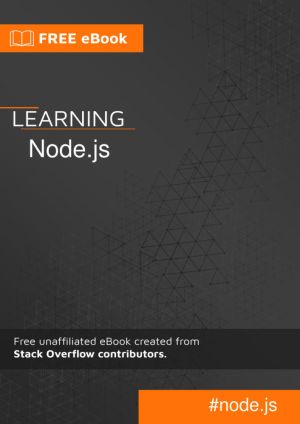
Node.js is an event-based, non-blocking, asynchronous I/O framework that uses Google's V8 JavaScript engine. It is used for developing applications that make heavy use of the ability to run JavaScript both on the client, as well as on server side and therefore benefit from the re-usability of code and the lack of context switching. It is open-...

Adoption of cloud-native application architectures is helping many organizations transform their IT into a force for true agility in the marketplace. This report defines the unique characteristics of cloud-native application architectures such as microservices and twelve-factor applications.
Author Matt Stine also examines the cultural, organiza...

This open book is an introduction to React that works from the foundations upward. Each chapter takes you a little deeper into the React ecosystem, building on your previous knowledge. Along the way, you'll learn how to maintain internal state, pass information between parts of an application, and explore different options for styling your app...
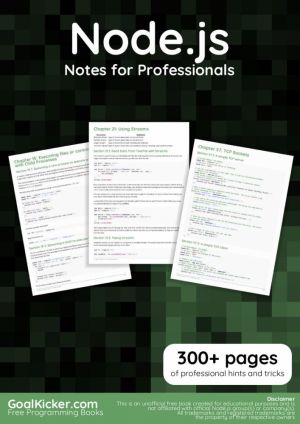
The Node.js Notes for Professionals book is compiled from Stack Overflow Documentation, the content is written by the beautiful people at Stack Overflow....
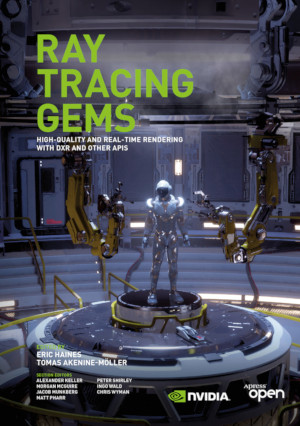
This book is a must-have for anyone serious about rendering in real time. With the announcement of new ray tracing APIs and hardware to support them, developers can easily create real-time applications with ray tracing as a core component. As ray tracing on the GPU becomes faster, it will play a more central role in real-time rendering. Ray Tracing...

